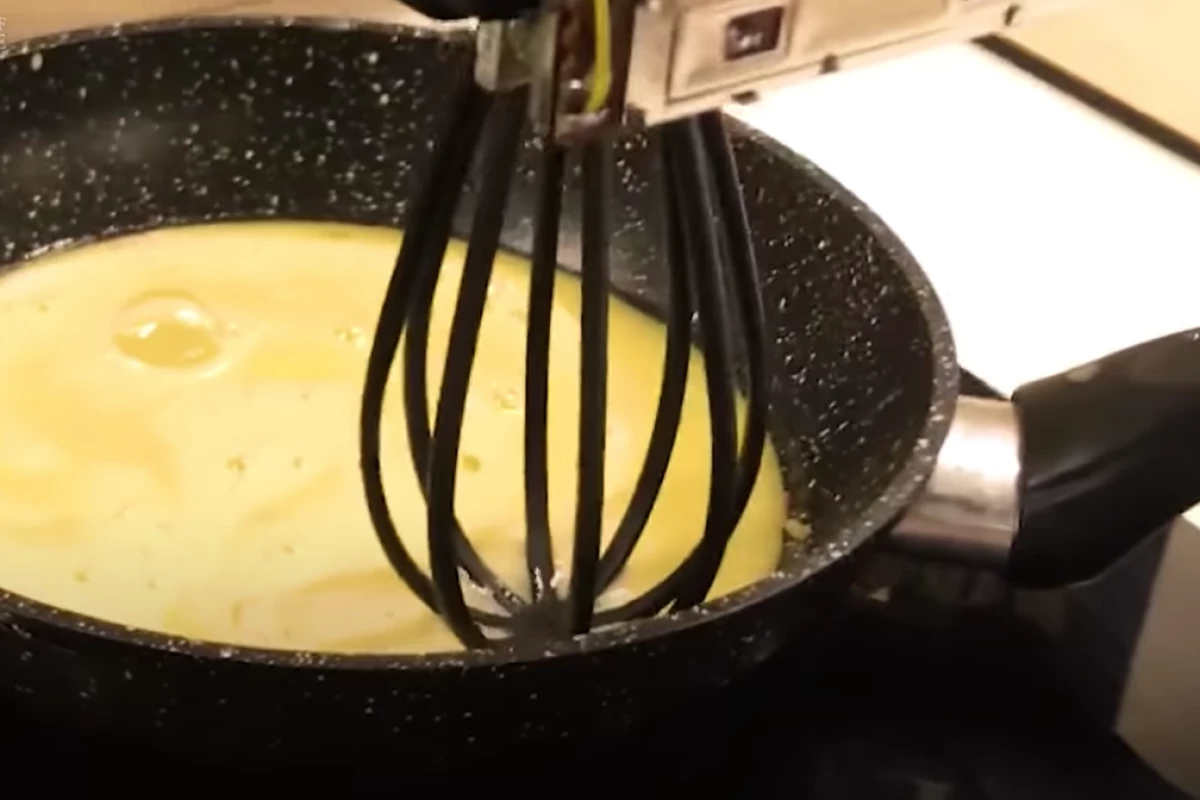From robots that flip burgers in California to ones that serve up bratwursts in Berlin, we are starting to see how machines can play sous-chef in kitchens around the world. But scientists at the University of Cambridge have been exploring how these culinary robots might not only do some of the heavy lifting but actually elevate the dining experience for the humans they serve, demonstrating some early success in a robot trained to cook omelettes.
The research project is a collaboration between the University of Cambridge researchers and domestic appliance company Beko, with the scientists setting out to take robotic cooking into new territory. Where robot chefs have been developed to prepare pizzas, pancakes and other items, the team was interested in how it might be possible to optimize the robot's approach and produce a tastier meal based on human feedback.
“Cooking is a really interesting problem for roboticists, as humans can never be totally objective when it comes to food, so how do we as scientists assess whether the robot has done a good job?” says Dr Fumiya Iida from Cambridge’s Department of Engineering, who led the research.
The team’s robot chef was trained to perform the various maneuvers involved in preparing an omelette, from cracking the eggs, to whisking them, gently stirring and then plating up the finish product. The robot was equipped with a machine learning algorithm developed by the Cambridge researchers that enabled it to factor in subjective feedback from human samplers and refine its approach.
“Another challenge we faced was the subjectivity of human sense of taste – humans aren’t very good at giving absolute measures, and usually give relative ones when it comes to taste,” says Iida. “So we needed to tweak the machine learning algorithm – the so-called batch algorithm – so that human tasters could give information based on comparative evaluations, rather than sequential ones.”
These evaluations, combined with the machine learning algorithm, enabled the robot to produce omelettes that reliably improved in quality over time and, according to Iida, "in general, tasted great." The team says this exercise demonstrates how machine learning can be leveraged to make quantifiable improvements to robotically produced foods.
“An omelette is one of those dishes that is easy to make, but difficult to make well,” says Iida. “We thought it would be an ideal test to improve the abilities of a robot chef, and optimize for taste, texture, smell and appearance.”
You can see the robotic chef do its thing in the video below, while the research was published in the journal IEEE Robotics and Automation Letters.
Source: University of Cambridge




